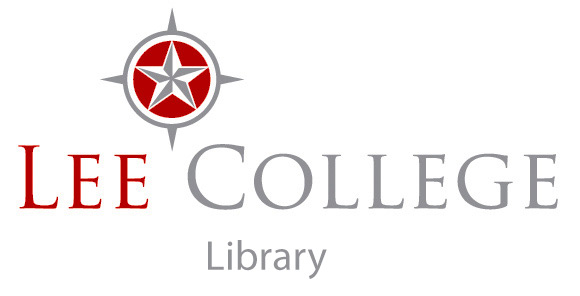Purpose of this guide
This guide is for informational purposes only and is not intended as legal advice or as a substitute for consultation with an attorney. Copyright related questions not covered in this guide should be referred to the Lee College Intellectual Property policy published in the Lee College Board Policy Manual.
Links to Important Copyright Information
- U.S. Copyright Office
Main website for the U.S. Copyright Office.
- U.S. Copyright Office - Frequently Asked Questions
A list of frequently asked questions compiled by the U.S. Copyright Office
Summer 2025 Library Service
All of the library's electronic resources, including articles, e-books and streaming video, continue to be available to Lee College students and employees 24/7.
- Library website: www.lee.edu/library
- When accessing resources off-campus, you will be asked for a user name and password. The user name will be your id number and you may need to be set or reset your password if you have not logged in in a while.
May Mini Hours:
- M-Th: 7:30 AM - 7:00 PM
- Fr: 7:30 AM - 12:30 PM
- Sa: Closed
- Su : Closed
Summer Closures:
- Mon, May 31st (Memorial Day)
- Wed, June 19th (Juneteenth)
- Thurs, July 4th (Independence Day)
Contact us via:
- Email: library@lee.edu
- Phone: 281-425-6379
- Text: 281-789-6286
-
Library Staff DirectoryContact one of our staff members directly.
What is copyright?
Copyright is a United States Law (Title 17, U.S. Code), that protects the rights of the creator of a work.
The owner has exclusive rights to:
- reproduce or copy the work
- prepare derivative works based on the copyrighted work
- distribute the work to the public
- perform the work in public
- display the work in public
- transmitting an audio work publicly
There are limitations to exclusive rights such as library exceptions, fair use, right of first sale, face-to-face teaching, TEACH Act, and exceptions for blindness and other disabilities.
What types of works are protected?
Original, creative works that are "fixed in a tangible medium of expression" are automatically protected by copyright. These works include:
- works of art
- literary and dramatic works
- music and lyrics
- choreography
- films and audiovisual works
- sound recordings
- software
- architectural designs
Items NOT protected by copyright:
- ideas, facts, processes, procedures, methods, concepts
- names, titles, and short phrases
- simple listings such as a table of content
- works created by U.S. Federal Government
- works in public domain
How to use works protected by copyright
How to use works protected by copyright?
There are certain instances in which you can legally and ethically use copyrighted works. These include:
- works in the Public Domain
- uses of works as part of face-to-face teaching
- uses that fall within fair use guidelines
- uses that meet the requirements of the TEACH Act
- works with a Creative Commons license
- works which you have permission from the copyright holder
Length of copyright
Works created on or after January 1, 1978:
Creators retain the right to the work for the life of the creator plus 70 years. For anonymous works or works for hire (created for an employer) the time frame is either 95 years from the publication or 120 years from the creation depending on which one is shorter.
Once the copyright expires, the material becomes part of the Public Domain and can be used freely.
Learn How to Investigate Copyright Status of works based on their date of publication.
-
Copyright Term and the Public Domain In the USAttributed to Cornell University Library CC BY 4.0
Your Librarian

ILS/Technical Service Librarian
Copyright Librarian
ATC, Room 123
